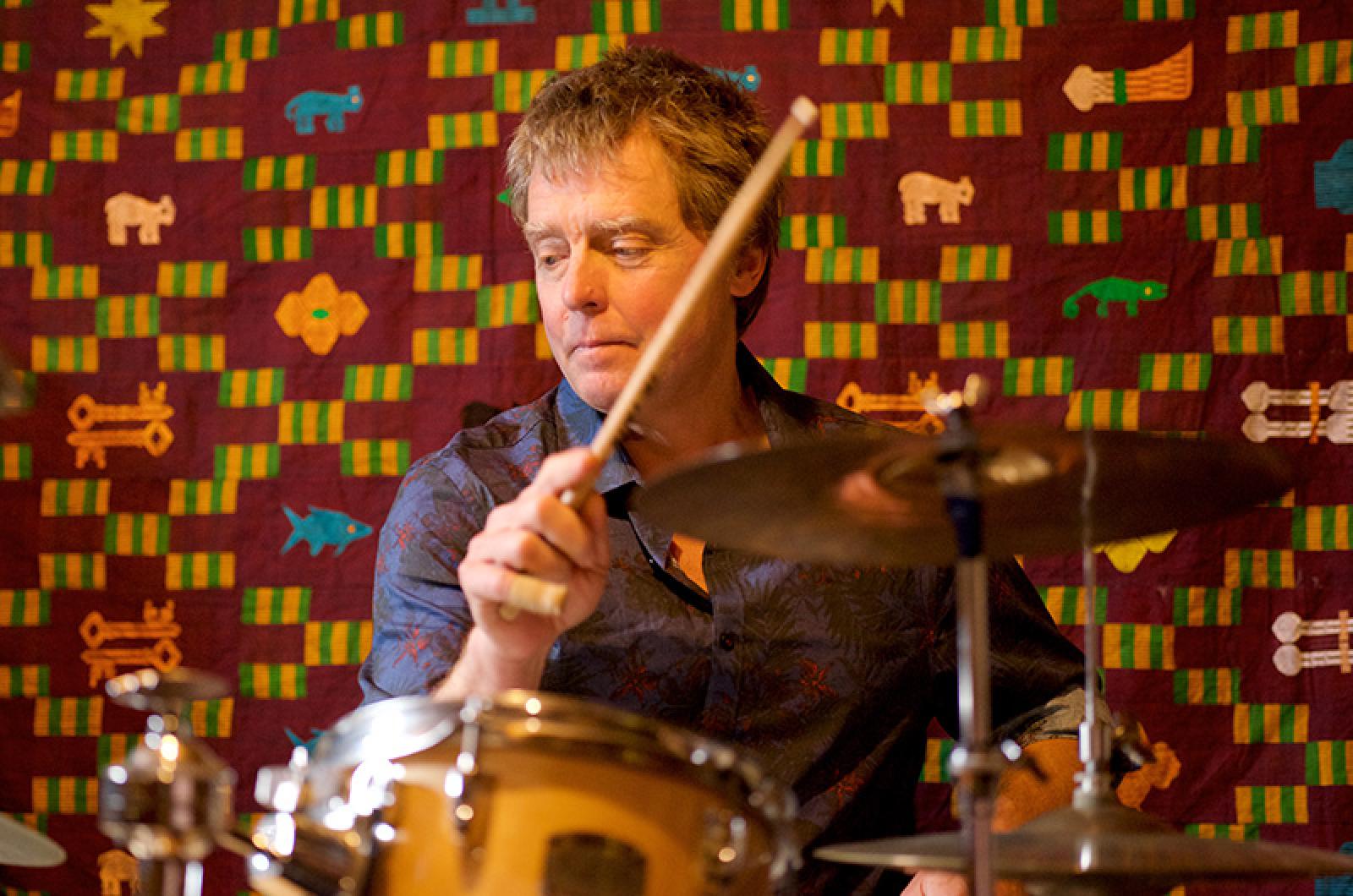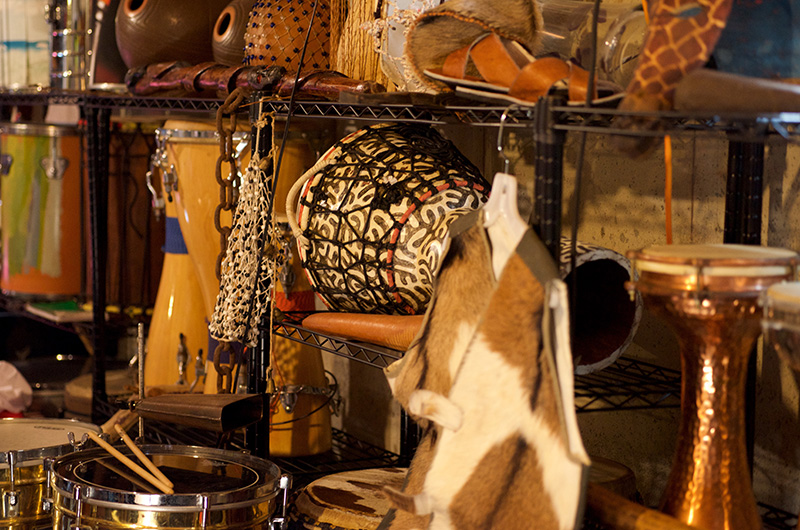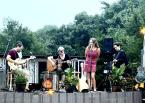When Rick Bausman left the Vineyard last Friday to board a flight to Haiti, he took with him a printer, a laptop, a duffel bag full of instruments and his traveling drum. When he touched down in Port-au-Prince, he was due to set off across the country on his latest mission: to build a series of cultural education centers in the historically oppressed Caribbean nation.
For Mr. Bausman, the journey toward this project may have begun when his parents gave him his first drum set to stop him from banging on their pots and pans as a small child. It may have begun in his 20s, when he decided to dive deeply into the polyrhythmic style and culture of Haitian drumming. Or it may have begun in the 1980s, when he came to Martha’s Vineyard as a volunteer for Camp Jabberwocky, realizing he had a gift for helping others through music.
But his diverse set of ambitions found solid footing three years ago, he said, when Pam and Nat Benjamin of Vineyard Haven invited him to Ile-a-Vache, a small Haitian island with a population about the size of the off-season Vineyard, to teach local children how to drum.
“I had been studying Haitian drumming for 30 years and had never been there myself,” Mr. Bausman said, looking through the window of his Edgartown home, where the view of a dreary winter afternoon contrasted starkly with interior walls decorated with colorful Haitian art and hand-painted drums. “It really all just went from there,” he said.
Mr. Bausman was eager to explore the impoverished country and test his skills with local musicians. But he soon realized the rapidly evolving musical culture had lost the intricacies of the traditional style he had learned in New York city so many years before. Going full circle, he began teaching Haitians the roots of their own musical culture, while learning a new style from the locals.
He also saw firsthand the pervasive influence of oppression that is rooted in the country’s colonial history. He saw an agricultural society that had collapsed, pushing people from the rural highlands and into the city slums. He saw deforestation. He saw starvation. And he saw a glut of NGOs that he said have only perpetuated a dependency on foreign aid.
Mr. Bausman felt a call to help bring a change to the country. Change will require a groundswell of support from Haitians themselves, he said, but it could start with something as simple as a drum. “The problem is that dependency has developed on the aid, and sometimes that aid, over a long period of time, it backfires,” he said. “You can feel the anger and frustration when you’re there. But change has to come from the people, not government or NGOs.”
He continued: “I want to start something based in Haiti’s deep culture, sense of community and spirituality to change the country from the inside out. Until you can address the problems from the inside, the problems aren’t going to stop.”
Mr. Bausman began to envision taking his cultural exchange a step further by building centers that can function as educational hubs for Haitian culture. The goal, he said, is to create jobs, give people the means to study their own culture and create lasting, sustainable change in the country, from the ground up.
“We can’t pull people out of the slums, but if we can build one or two cultural centers, staff them, provide work for people to build it . . . drummers can teach classes, there can be ceremony, and classes in metal works and different types of art,” he said. “All of this represents . . . a revitalization of national pride. Ideally, everything else will follow.”
He sees the project as an extension of his nonprofit organization, Rhythm of Life, but he has had trouble raising funds. One reason, he said, is a stigma surrounding the Vodou religion. The stigma can be traced to the early 19th century revolution, when Haitians united around Vodou to overthrow the French government. Though the revolution was successful, the colonial response to demonize the culture has had an effect that lingers today.
“It made sense,” Mr. Bausman said. “Imagine being a French soldier, hearing the sound of drums way off in the hills. It was the sound of the people that were coming for you, coming to kill you.”
Mr. Bausman said he believes a cultural institution where people can engage with their own history and musical tradition is a vital step in another revolution within Haiti. This time, though, it would be carried out with drums as a force for peace instead of violence.
In Haiti, meanwhile, strife continues, with police violence this week forcing the cancellation of carnival festivities that traditionally mark the start of the Easter season.
Still far away from that on the Vineyard, Mr. Bausman said last week he doesn’t think cultural centers will solve all the problems in Haiti, but he thinks of it as a starting place.
“I’m there to help, I’m not trying to save Haiti,” he said. “I fit into the thousand-piece jigsaw puzzle in my own way, a lot of other stuff has to happen. But I still think we should help . . . This is the only way I know how.”









Comments (14)
Comments
Comment policy »